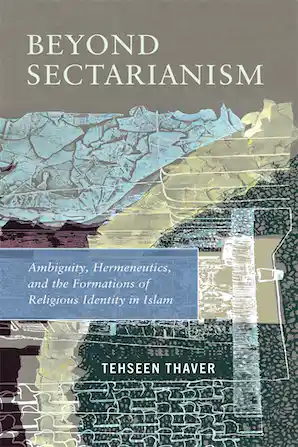Thaver (Tehsen), Beyond Sectarianism. Ambiguity, Hermeneutics, and the Formations of Religious Identity in Islam, Philadelphia, University of Pennsylvania Press, 2024, 320 p. ISBN 9781512825947
Author
Tehseen Thavar is Assistant Professor of Religion/Islam at Princeton University.

Presentation
Beyond Sectarianism offers new and theoretically exciting avenues for studying the tradition of Qur’an commentary in Islam. It argues that sectarian identity and scriptural interpretation do not always follow predetermined patterns and questions the dominant assumption in the study of Shi‘i Qur’an commentaries that they do.
In this groundbreaking book, Tehseen Thaver offers a fundamental reevaluation of how one should think about the relationship between the Qur’an, Shi‘ism, and religious identity. Beyond Sectarianism focuses on the literary Arabic Qur’an exegesis of the highly influential yet less studied poet, historian, and exegete al-Sharif al-Radi (d. 1015). Al-Radi’s fascinating interpretations sought to resolve Qur’anic ambiguities or mutashabihat. Through a philologically layered and historically attuned analysis, Thaver argues that al-Radi’s efforts at resolving Qur’anic ambiguities were interlocked with the project of the canonization of the Arabic language.
Although he was marked as a Shi‘i scholar, the interpretive and political horizons that informed al-Radi’s scholarly endeavors could not be reduced to predetermined templates of sectarian identity. Rather, Thaver argues, al-Radi was an active participant and beneficiary of critical intellectual currents and debates that animated the wider Muslim humanities during his life, especially on questions of language, poetry, and theology. Thaver thus leads her readers to reconsider their assumptions about the interaction of sectarian identity and scriptural interpretation in the study of Islam and religion.
Though centered on the context of late tenth- and eleventh-century Baghdad under the Buyid dynasty, Beyond Sectarianism raises and addresses crucial questions of religious thought and identity with major ramifications for how we imagine the narrative of Islam and the place of sectarianism in it today.
